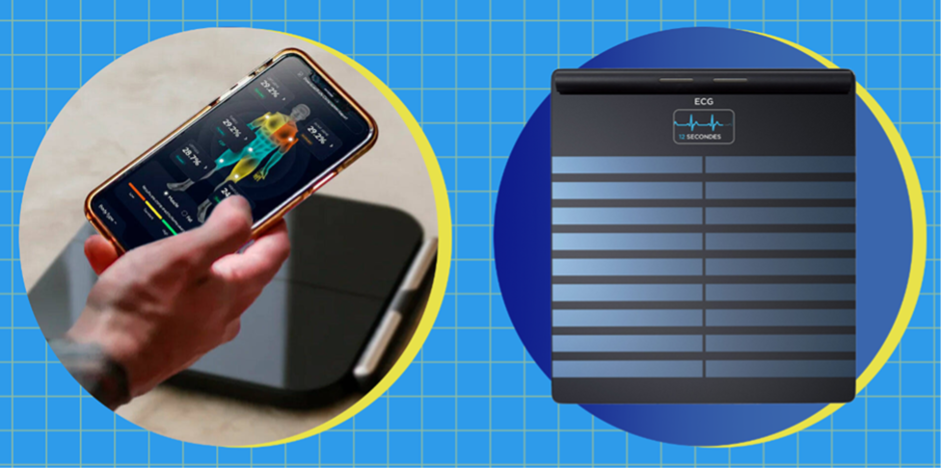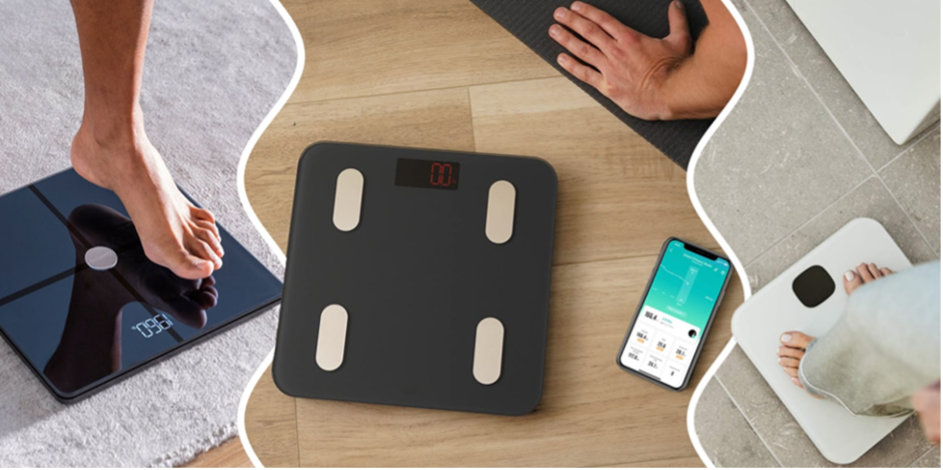Have you ever wondered if a simple scale could do more than just tell you your weight? The technology behind smart scales has evolved significantly, allowing them to provide a wealth of health data right at your feet. Let’s dive into understanding what are smart scales, how they function, and what key metrics they track.
Table of Contents
ToggleWhat Are Smart Scales?
A smart scale measures your body weight and offers a detailed analysis of various body composition metrics. Unlike traditional scales that only display weight, smart scales can relay information about muscle mass, body fat percentage, and even bone density.
How Smart Scales Work
Smart scales employ technology called Bioelectrical Impedance Analysis (BIA). When you step onto the scale, it sends a weak electrical current through your body. This current travels through different tissues and measures their resistance. The scale can then provide insights based on the resistance values. This functionality allows you to gather a comprehensive picture of your body composition, making it easier to track your health over time.
Key Metrics Measured by Smart Scales
Smart scales offer a range of metrics that can be incredibly beneficial for monitoring your health. Here are the key metrics you can track:
| Metric | Description |
|---|---|
| Weight | The primary measurement of body mass. |
| Body Fat Percentage | The proportion of your weight that comes from fat. |
| Muscle Mass Percentage | The portion of your body weight that consists of muscle. |
| Bone Density | A measure of bone strength and health. |
| Water Percentage | The fluid content in your body, which plays a role in overall health. |
| Basal Metabolic Rate (BMR) | The number of calories your body burns at rest. |
| Body Mass Index (BMI) | A calculated ratio of weight to height, offering a generalized view of body fat. |
Each of these metrics can provide you insights into your overall health and fitness.
Weight
This is the most straightforward measurement and provides a baseline for understanding your other metrics. However, weight alone doesn’t give the full picture of your health.
Body Fat Percentage
This metric is particularly valuable because it shows how much of your body weight is made up of fat. High body fat percentage can indicate potential health risks.
Muscle Mass Percentage
Understanding how much muscle you have is essential, especially for those looking to build strength or improve athletic performance. Muscle is denser than fat, so tracking changes in muscle mass can reflect positive progress.
Bone Density
While less commonly focused on in daily tracking, maintaining good bone health is crucial as you age. Some smart scales provide insights into your bone density.
Water Percentage
Hydration is vital for overall health. Your water percentage can fluctuate based on various factors—like diet, exercise, and even climate—making it a useful metric to monitor.
Basal Metabolic Rate (BMR)
Knowing your BMR can help you understand how many calories your body needs to maintain basic functions at rest. This information can be valuable when managing your diet and exercise plan.
Body Mass Index (BMI)
BMI is a commonly used tool that helps categorize individuals based on their weight relative to their height. While it has its limitations, it can serve as a helpful starting point for understanding your overall health.

This image is property of aeno.com.
Effectiveness and Accuracy of Smart Scales
While smart scales can provide a great deal of information, it’s essential to remember that they are not medical devices and can have inaccuracies, particularly with body composition measurements. Different models may report varying results due to their algorithms, and factors like hydration can affect your readings unexpectedly.
Factors Influencing Accuracy
- Hydration Levels: Your hydration status can significantly impact your body composition readings. For instance, being dehydrated or excessively hydrated can lead to inaccurate body fat measurements.
- Body Position: Always standing in the same way can help you achieve consistent results.
- Scale Quality: Higher-end models tend to use more advanced technology and might offer more accurate readings compared to budget models.
Despite these potential discrepancies, many users find smart scales to be relatively reliable for tracking health trends over time.
User Considerations: Who Should Avoid Smart Scales?
While smart scales can be a valuable tool for many, they are not suitable for everyone.
Pregnant Women and Smart Scales
Pregnancy brings about a multitude of changes in your body. The readings from smart scales may not be dependable during this time, so consulting a healthcare professional can often be more beneficial.
People with Pacemakers
Because smart scales utilize a small electrical current, individuals with pacemakers should avoid using these devices. The current can interfere with the device’s function and potentially pose health risks.
Manual Height Entry
Most smart scales do not measure height automatically. This means you’ll need to enter your height manually into the companion app, which could be an inconvenience for some users.

This image is property of aeno.com.
Advantages of Using Smart Scales
Smart scales offer numerous advantages that go beyond what traditional scales provide.
Comprehensive Health Metrics
The ability to track multiple metrics allows for a more thorough understanding of your health over time. You won’t just see a number; you’ll get insights into where you’re making progress and where you might need to focus your efforts.
Motivation to Achieve Goals
With various metrics displayed right on your smartphone, tracking progress can be incredibly motivating. Keeping an eye on improvements can boost your self-discipline and keep you committed to your fitness routine.
Multiple User Setups
Most smart scales allow for multiple user profiles. This feature is incredibly useful for households with various individuals wanting to track their metrics without getting them mixed up.
Limitations of Smart Scales
While they have several benefits, there are limitations to consider before investing in a smart scale.
Inaccuracies in Body Composition Measurements
While innovative, smart scales can be inaccurate in terms of body composition metrics. This can lead to confusion, particularly if you’re relying solely on these readings to gauge your fitness.
Need for Consistent Conditions
To get the best results, it’s essential to weigh yourself under similar conditions each time. This consistency includes doing so in the morning after waking, before eating or drinking, and using the same scale consistently.
Manual Height Input
As previously mentioned, most smart scales require you to enter your height manually. This step can be cumbersome, especially if you’re looking for a seamless experience.

This image is property of aeno.com.
Tips for Effective Use of Smart Scales
Here are some suggestions to maximize your experience with smart scales and get the most reliable data.
Weigh Yourself at the Same Time Every Day
For the most accurate tracking, hop on the scale at the same time each day. Morning weigh-ins after using the restroom, for example, can minimize variability and provide a more consistent measure.
Track Trends Instead of Daily Fluctuations
Daily weight can fluctuate due to numerous factors such as water intake, diet, and exercise. Instead of fixating on daily readings, focus on the overall trend over weeks or months.
Use the Companion App Regularly
Many smart scales come with companion apps that collect and analyze your data. Make a habit of checking your app regularly. It can provide useful insights and keep you motivated on your fitness journey.
Understand the Metrics
Make sure to familiarize yourself with what each metric means and how it pertains to your overall health. This will help you make informed decisions in your wellness journey.
Conclusion
Smart scales offer much more than a traditional scale, providing a wealth of data that can assist you along your health journey. However, as with any health tracking tool, it’s important to approach the data with a balanced viewpoint. Fluctuations are part of the process, and understanding the broader picture of your health will ultimately guide you more effectively. By tracking metrics over time and focusing on consistency, you’re setting yourself up for success in improving your overall health and fitness. Enjoy the journey, and remember that health is a marathon, not a sprint.




